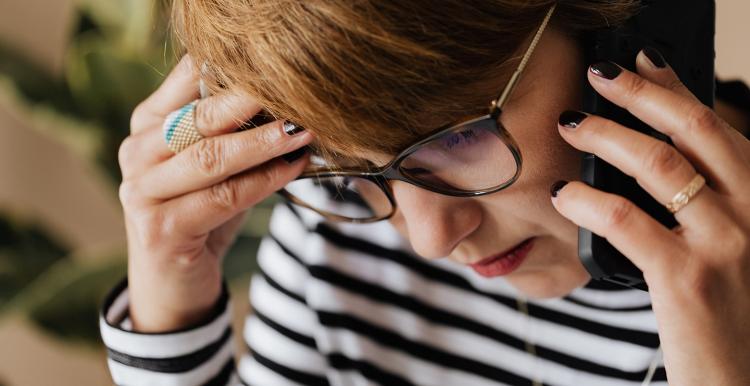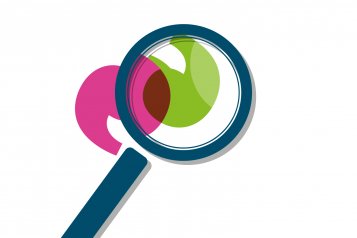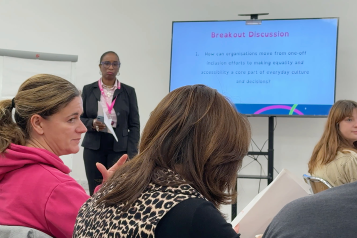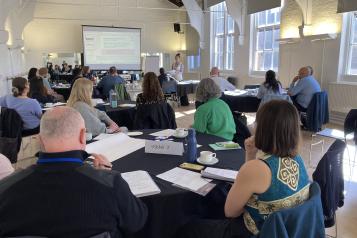Islington residents tell us what they think about remote health appointments

I’m a practice manager. Halfway through the pandemic the health secretary did come out and say that GPs would be providing a "digital first" service going forward. GPs are wary of that, but I think there will be a change of landscape. We will not be returning to what we had before.
What is a remote health appointment?
During the pandemic, most appointments with health professionals have taken place remotely. Patients speak with their doctor, nurse, or another health professional over the phone or via a video link. Face-to-face appointments have continued to be offered in certain cases, but have not been widely available. This is a big change.
One in five of us don’t have the digital skills needed to access GP services via online platforms. The shift to a 'digital first' health service risks widening the digital divide. Even for those of us lucky enough to have access to digital devices and a reliable internet connection, our experience is likely to be very different from a traditional face-to-face appointment.
In this blog, we share some of the feedback we've received about remote appointments and identify some emerging themes.
Tell us your experience of remote appointments
Have you used e-consult, or had an appointment with a health professional over the phone or via a video link? Share your views by taking our two-minute survey. If you feel that these services aren't accessible to you we'd like to hear about the barriers you face.
Feedback on video appointments
- Good communication skills from health professionals are even more important over a video link
- It can be helpful not to have to travel to the appointment or sit for extended periods of time in waiting areas
- Technical issues can have a negative impact on the patient experience
- Video appointments are not appropriate for every patient or condition
"I had a positive experience. I had two video consultations with the respiratory team at UCH. They were very thorough. The consultant was a good communicator which I think is very important in making this kind of appointment work. I also liked the fact that I didn’t have to travel to the hospital."
Feedback on phone appointments
- Inability to phone your GP back if you miss the call causes anxiety
- Problems with phone reception can make it hard to make yourself understood
- Phone interactions can feel less complete than face to face appointments
"I do think that the switch to remote consultations in general means that some of the added value of face to face communication gets lost. You're less likely to mention something in passing that is probably unrelated to your condition, but might not be, because the interaction is less spontaneous. I had a couple of phone consultations with my GP practice which I found a little underwhelming."
"I have had two telephone calls from senior doctors. I had trouble being understood by one on a mobile. The second was fine. I could hear and be understood. I understand why we had appointments on the phone to protect everyone from Covid but found communication difficult."
Patients with communication support needs
- There are added challenges in making remote appointments work for patients with sensory impairments and sensory differences
"Remote appointments are very difficult for deafness because I mostly lip-read. No audio device is good enough for clear words and I am afraid of giving wrong answers to the GP's questions. Facial vibrations are helpful, so I very much like to access services face to face. Texts are subject to Wifi availability and keeping appointments may not be possible in my home. I am not happy about lost privacy if other people have to help in a phone or video conversation."
Feedback on e-consult
e-consult is a digital platform that GP practices use to offer remote consultations to their patients. Patients use an online form to describe their symptoms. The GP surgery then make a decision on the appropriate response, which may be a text message, phone or video call, or face-to-face appointment.
- e-consult can work well but it does require a certain level of digital skill to use
- The platform doesn't work so well for certain types of appointment
"Helpful, easy to use. I got an answer that was helpful from a doctor within the time stated. Didn't need to go back and followed the advice I was given."
"To contact the surgery for the GP call, I used e-consult. There were many questions about symptoms that were not relevant to my request for an appointment to discuss the blood test result. I had to complete them to be able to submit the form. I instructed the GP to ignore my responses."
Feedback from health professionals
During the pandemic, health services have been compelled to offer appointments remotely to prevent the spread of coronavirus. However, for some services, this has only accelerated a change that was happening anyway. This change can be positive.
At our 'Cancer care and Covid-19' event last August, Anant Patel, Consultant Respiratory Physician at the Royal Free London NHS Foundation Trust explained that they had found remote appointments to be very effective for reviews of lung cancer patients.
"For lung cancer [reviews], most of this is now remote, mainly video. We’d been working on this for around nine months before Covid and have found it’s an effective way of delivering care, and although you might lose some of the benefits face-to-face appointments bring, it comes with many other benefits. For example, you don’t have to sit around in a hospital waiting room for an hour and a half. Covid has enabled this."
Finally, it is important (and encouraging) to remember that health professionals themselves are very keen to return to more traditional ways of seeing patients.
"After the pandemic, face-to-face appointments will be offered more often, once the covid vaccination makes this possible. It is also important to consider the needs of health professionals. They are missing seeing patients as well. And to train as a health professional you absolutely need to be seeing patients face to face."


